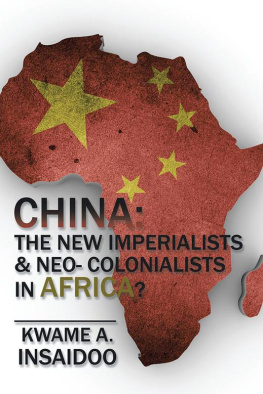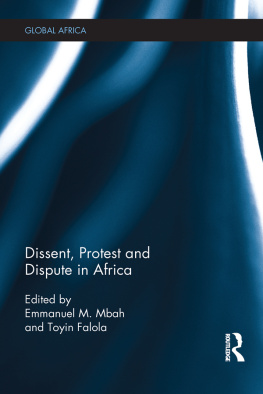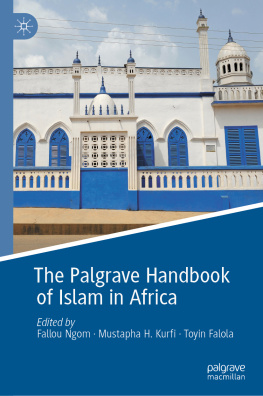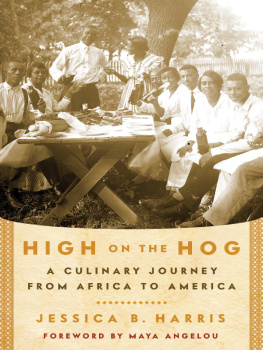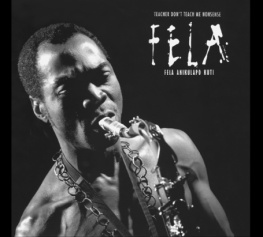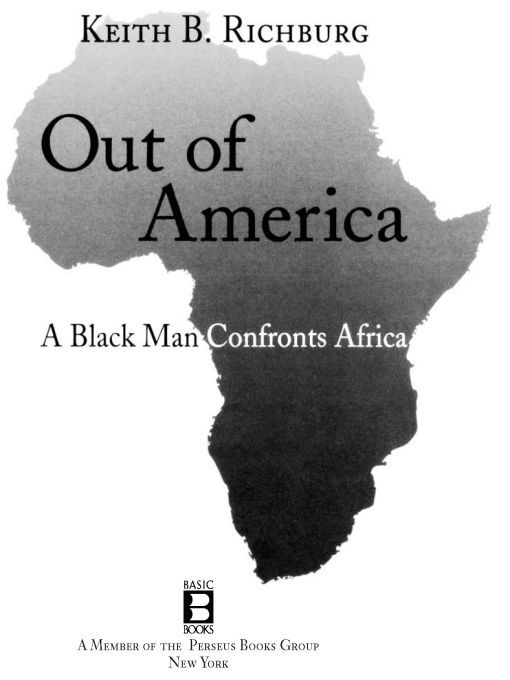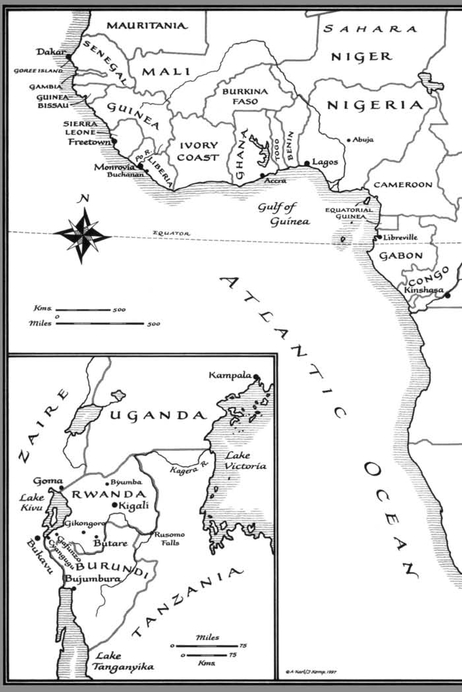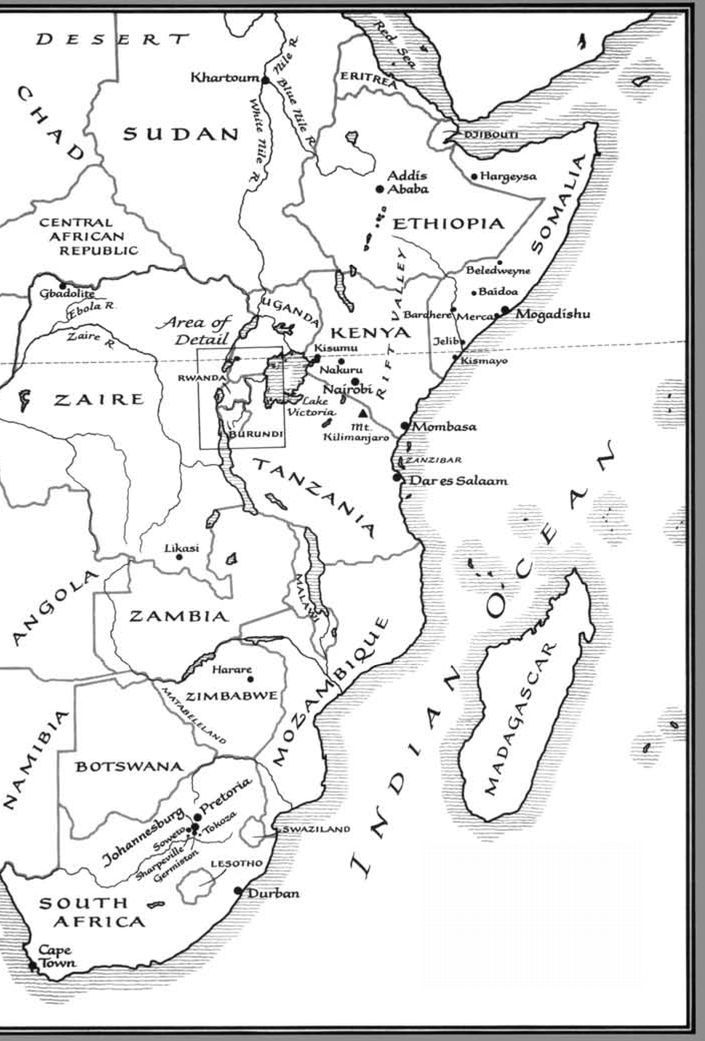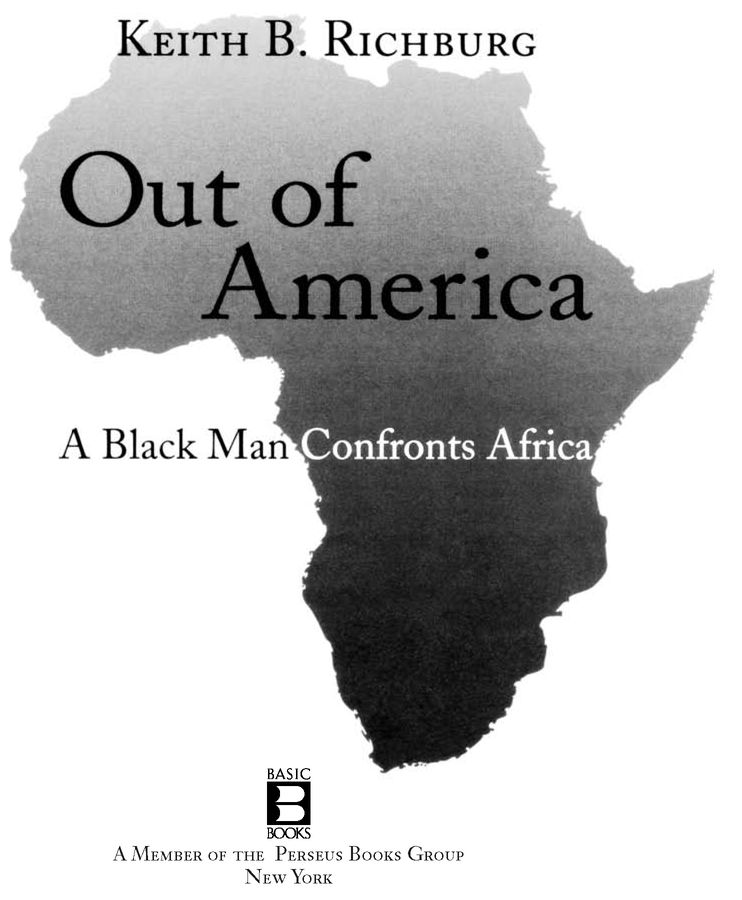Table of Contents
Praise for OUT OF AMERICA
Richburg arrived in Nairobi thinking that the continents best days since independence were immediately ahead. As he relates in riveting detail in Out ofAmerica,that is not the story he found.... Out ofAmericahas been called an angry book. But the anger is often justified and in most cases controlled. And it is in service of truths that badly needed saying.
American Spectator
A salutary dose of realism.
Foreign Affairs
A courageous effort to tell the truth.
Journal of Blacks in Higher Education
Richburg certainly should be praised for his honesty and his preparedness to think the unthinkable.
New Republic
An eloquent testament... a dead-on portrait of a continent mired in misery and violence. Out of America might easily have been just another gonzo adventure tale. What sets the book apart is Richburgs bitter repudiation of Afrocentrism. As a black American returning to the land of his ancestors, he filters all he sees through the prism of his racial identity. Instead of empathy he feels only a deepening sense of estrangement ... an important and original book.
Newsweek
Black America has always imagined Africa like the adopted child imagines the birthparent. The dream is that Africa holds a truth for us. Keith Richburg marches through that dream and finds that he was an American all along.
Shelby Steele, author of The Content of Our Character
Keith Richburgs pathbreaking narrative has the deliciously subversive feel of a samizdat classic. Anger at this book will, I suspect, only enhance its prestige. The judicious reader will see that Richburg is a self-confident American who, while proud of his rich, black heritage, does not require Africa to buttress his identity.
Robert D. Kaplan, author of Balkan Ghosts and The Ends of the Earth
Out ofAmericais a book weve needed for a long time and Keith Richburg delivers. He has written a courageous book that is at once moving and disturbingan African journey of the heart that I will not soon forget.
David Lamb, national correspondent, Los Angeles Times, author of The Africans
With searing, vivid candor and unflinching courage, journalist Keith Richburg dares to discard preconceived notions about Africa to learn and convey a larger truth about humanity. His personal observations demolish the confining categories of race and class that imprison us all. Out ofAmericais a brilliant, electrifying story of one mans hard-won liberation.
John Hockenberry, NBC News, author of Moving Violations: War Zones, Wheelchairs, and Declarations of Independence
AFRICA SOUTH OF THE SAHARA
To my mother, Katie Richburg, in loving memory
Foreword
ITS EARLY IN THE FIRST YEAR of Barack Obamas presidency, and Im sitting in the living room of my apartment in the Chelsea neighborhood of Manhattan. The television is turned on to a cable news channel for background noise, and there is President Obama speaking about the economy to a gathering of reporters and invited guests in the East Room of the White House. He is warning Americans to expect more pain to come before the country can turn the corner. I glance up from my laptop and see him there on the screen, looking confident, strong, very much in his element. He looks and sounds like The President.
At moments like this I still have to pinch myself as a reminder that this scene is real, and not some made-for-TV Hollywood movie. Our forty-fourth president really is a black man, someone who, with his skin color and close-cropped curly hair, looks more or less like me. And I think back to my stupefied, gap-jawed reaction the night of his election in November 2008a speechless-ness that soon gave way to a welling sense of joy, and then tears. And then Inauguration Day, just a few weeks ago, when, although the fact of his election was already cemented in my mind, I, like many others, still could not quite believe it. For me the realization hit when he stepped out of his bulletproof limo on Pennsylvania Avenue and began walking part of the distance to the White House, hand-in-hand with his wife, our First Lady, Michelle.
I had always put an enormous amount of faith in this country and its opportunitiesthat was, in essence, a central theme of Out of America, which was originally published in 1997. One of my main conclusionsand the one that at the time generated the most controversywas that after traveling around Africa, and seeing the misery and poverty prevailing on the continent of my ancestors, I was thankful to have been born in America, where even for a black man, a descendant of slaves, anything and everything was possible.
And what has happened in Africa over these intervening dozen years since I wrote Out of America? Has anything changed there that would alter my view?
My assessment of Africa at the time was admittedly bleak, born out of three and a half years traveling around the continent from 1991 through 1994 as a journalist, where I covered stories ranging from famine and anarchy in Somalia to a genocide in Rwanda, from the brutality of Liberias civil war to the complete breakdown of Zaire, which became Africas largest failed state.
The last decade has been one of tremendous change across the world, and Africa has not been immune. When I left Africa at the end of 1994, I had never sent or received an email, and had never seen a newspaper Web site. The clunky satellite telephone I hauled into Mogadishu took two people to carry and about a half-hour to set up, with its extended umbrella dish; now my Blackberry can surf the Net and it fits neatly in the front pocket of my shirt.
Returning to Africa for a brief visit at the end of 2006, I saw just how much these technological changes had improved lives for average Africans. In Nairobi, taxi drivers and market vendors chatted away on their cell phones; whenever I took a taxi in Nairobi, the driver almost always handed me a card with his cell phone number to call in case I needed another ride in the future. In Addis Ababa, I popped into Internet cafs to check my email, and sat next to students reading newspapers online or chatting with friends via Skype or Instant Messaging. And from the Horn of Africa down to Johannesburg, I found evidence everywhere of Chinas growing footprint on the continent, from the Chinese office buildings under construction to the Made in China goods and clothes in the markets to the Chinese restaurants that have sprouted up in the cities.
But for all that I found that is better in Africa, there is still too much that is sadly familiar.
Some of those whom I had considered among the new breed African leaders have proven themselves just as obdurate and unwilling to relinquish power as the former African Big Men they replacedby manipulating elections, jailing and cowing political opponents, and stifling what there is of a free press. Yoweri Museveni is still there in Uganda, perpetuating his hold on power. Meles Zenawi is still there in Ethiopia; the 2005 elections, in which the opposition scored big gains, ended up in a bloodbath when government security forces in Addis Ababa shot and killed nearly 200 demonstrators. In the resulting crackdown, Meles jailed most of the main opposition party leaders and leading journalists, mostly on trumped-up charges of treason.


